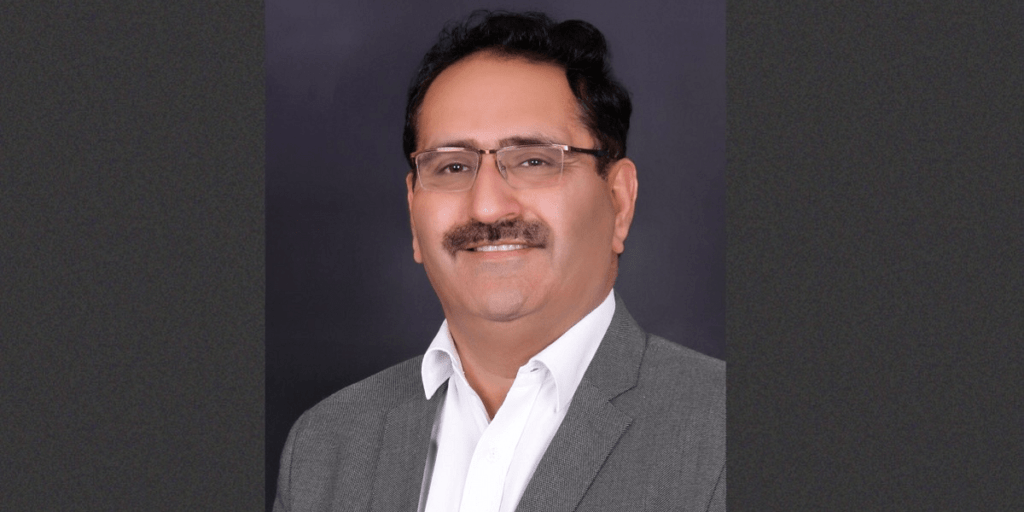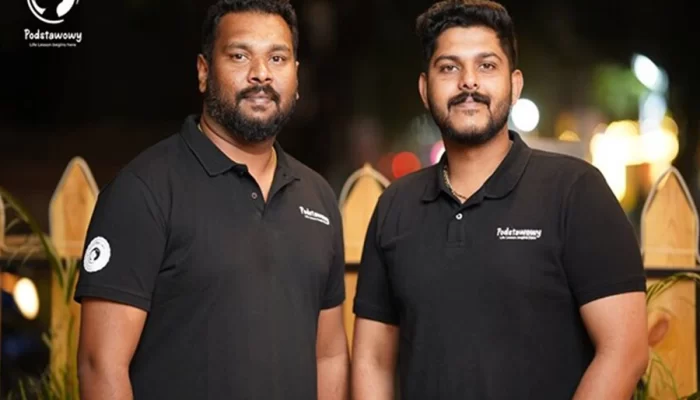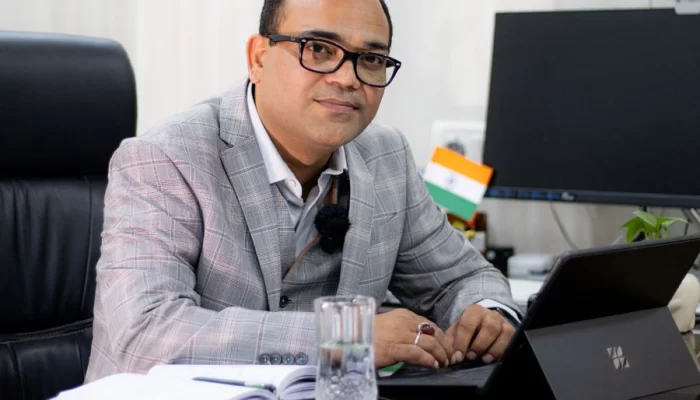Chandigarh Based Startup PAYMART is Turning Kiranas, Retail stores, Petrol Pumps into Virtual ATMs
PayMart has developed technology that converts next-door merchants, retail stores, kirana stores, pharmacies, restaurants, and petrol pumps into virtual ATMs and enables cash withdrawals through these outlets.

The digital economy may have gotten a boost during the pandemic, but cash continues to drive most of India’s transactions.
ATM cash withdrawals continue to grow, but their low penetration and difficulty in accessing them are concerning aspects. There are only 17 ATMs per lakh people in India, which is erratic. Many people still have to travel miles to withdraw cash in some places.
Across this gap, PayMart has developed technology that converts next-door merchants, retail stores, kirana stores, pharmacies, restaurants, and petrol pumps into virtual ATMs and enables cash withdrawals through these outlets.
In 2018, Amit Narang, a serial entrepreneur, founded the startup in Chandigarh, which has built a network of over 50,000 merchants in Mumbai, Chandigarh, Ambala, Mohali, Indore, Ahmedabad, and Delhi.
Setting up virtual cashpoints
After almost three years of building a strong merchant network and convincing stakeholders, Amit was finally granted permission to launch his platform.
Traditionally, a debit card is inserted into an ATM/Point of Sale (POS) machine that sends the request to the core banking system. The request is processed, and the account is debited with the required amount, instructing the ATM software to make the withdrawal.
This is a three-way communication between a cardholder, ATM software, and core banking system. Basically, the ATM is replaced with a mobile phone of the merchant that is connected to the PayMart platform, which facilitates three-way communications for cash withdrawals.
When a customer requests a cash withdrawal through its mobile banking app, the bank generates an OTP. This OTP can be taken to a nearby partnered merchant, who will input it to PayMart on his phone and process the request.
As soon as the bank approves the transaction, the merchant hands over the cash to the customer, whose account is debited.
The platform gets a fee from the bank per cash withdrawal, and 70 percent of that goes to the merchant. The merchants receive a monthly consolidated commission, and cash disbursed by them is credited to their accounts regularly.
PayMart is Amit’s second venture. He worked for almost 30 years for companies such as Paul Merchants, Foreign Exchange Western Union, and others before taking the initiative to start up FX Mart Pvt Ltd in 2013.
FX Mart, which provided electronic payments, remittances, foreign exchange, and travel related services, was acquired by Flipkart in 2015 and rebranded as PhonePe, which is one of the largest payments companies in India.
With a successful exit, Amit turned his attention to the virtual ATM industry and bootstrapped PayMart in 2018.
“Despite being the world’s largest cash economy, our country is ATM-deficient. To meet the country’s extensive cash withdrawal demand, the current withdrawal mechanisms are insufficient. A virtual ATM network that spans all of India can help correct the existing mismatch,” Amit says.
In addition to the virtual ATM opportunity, the platform has received a foreign exchange license and will begin operating soon.
Additionally, it conducts regular digital literacy camps with banks across the country. The startup has partnered with corporate partners like Shop Kirana, Altruist, and SR Plus to expand its merchant network.
Also read: Pine Labs raises $600 million in funding and plans an IPO in 18 months.

First-mover advantage
The company claims to be the first in India to launch virtual ATMs. There is a large opportunity because there are few ATMs in a heavily cash-dependent economy. The number of bank accounts is over 100 crore and annual cash withdrawals exceed one crore rupees.
Many banks and fintech companies like Mswipe are working in the microATM (POS Machine) space while platforms like PhonePe offer ATM services to their users through nearby partnered merchants.
“We eliminate the need for ATMs, point-of-sale terminals, biometric devices, or other types of hardware. Currently, India has a 44 percent smartphone penetration rate. That number is expected to grow to 51 percent by 2025, which will contribute to our smartphone-based transaction flow.” – Says Amit
In addition to next-door merchants and Kirana stores, the startup is targeting petrol pumps, forex terminals, pharmacies, restaurants, and hotels, which could disrupt the cardless cash withdrawal market in India.
Already, global vendors such as Spare CS Inc, Sonect AG, and Socash are in the space and transforming the adjacent shops and stores into cash points.
The future: Full-stack fintech
The startup has raised $500,000 in funding from a clutch of angel investors, including Kiran Shetty (CEO, SWIFT India), Jamil Khatri (Head of Audit, KPMG India), Alok Bansal (Co-founder, PolicyBazaar) and Avtar Monga (Ex-COO, IDFC Bank), and prominent angel networks like Angel Bay, Chandigarh Angel Network and CIIE (IIM Ahmedabad).
PayMart plans to close a $2 million Series A round next quarter.
Amit adds, “Our goal is to capture 10 percent of the cash-out industry by 2026 and provide services to over 10 million merchants.
Moreover, the startup is in advanced negotiations with banks and big retail chains like Big Bazaar, VMart, and petrol stations.
In three years, we expect to break even and expand into features such as payments, insurance, loans, and remittances to build a full-stack fintech platform,” says Amit.
Also read: FinTech in India is on the rise – as per latest reports.









